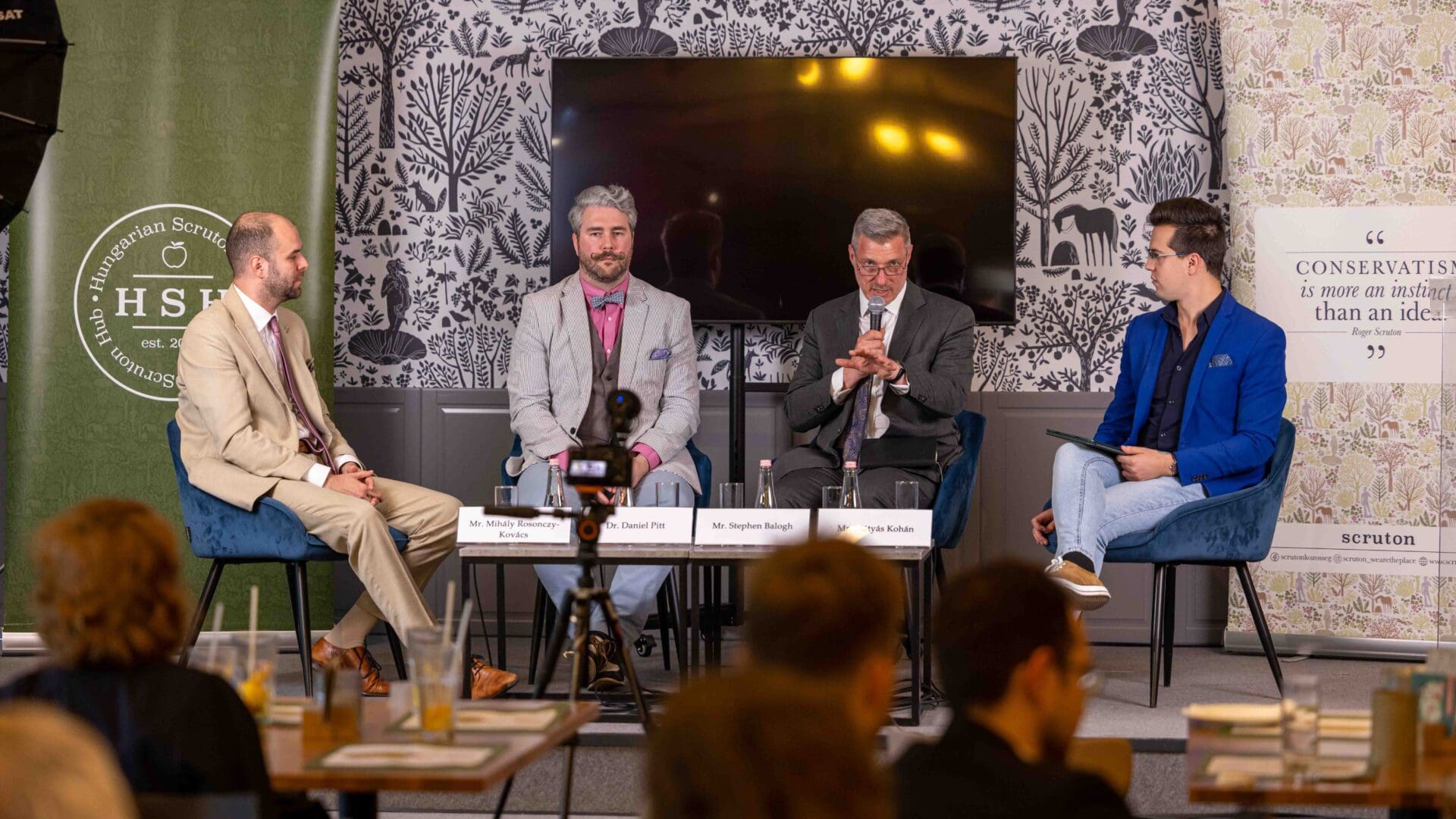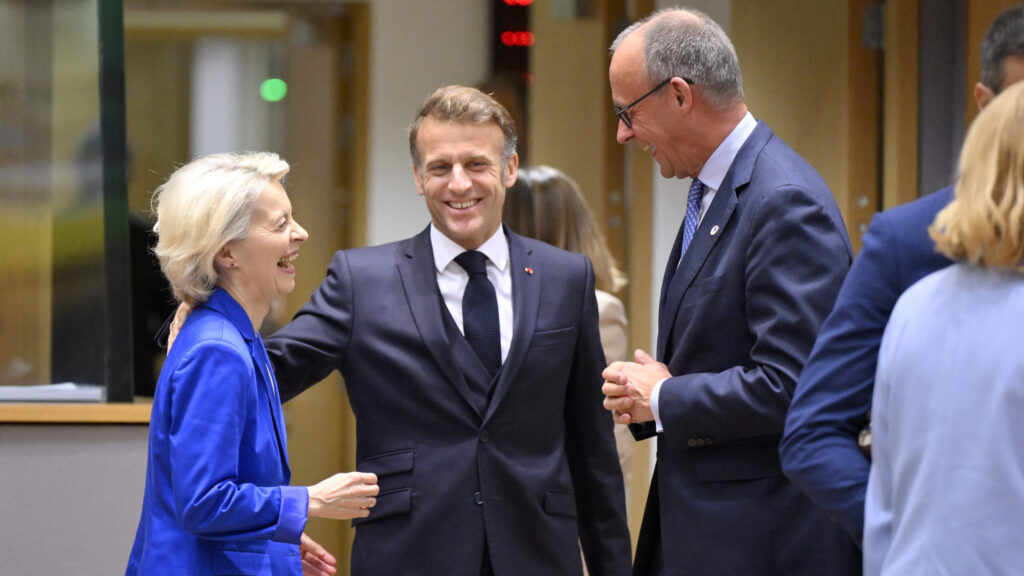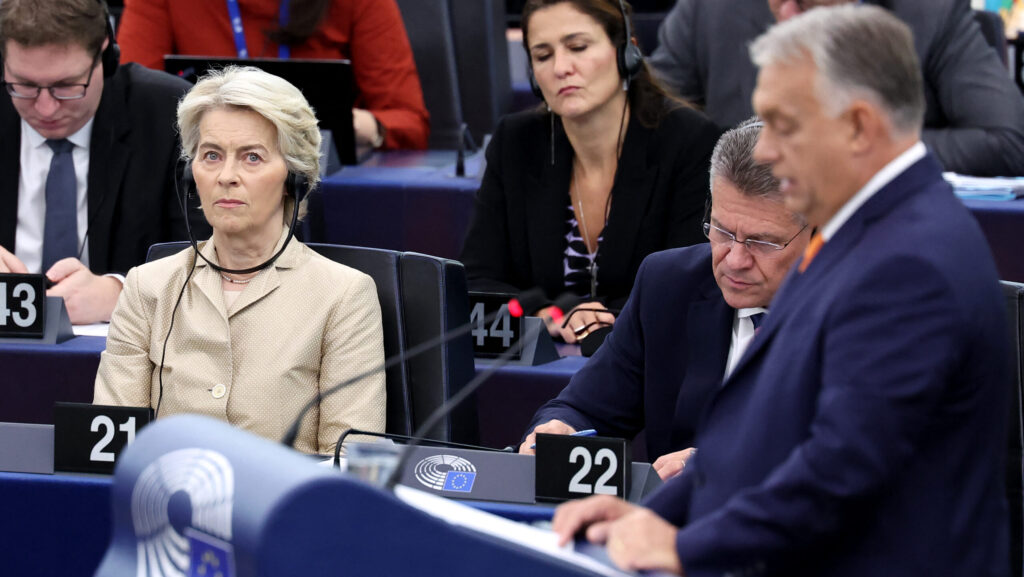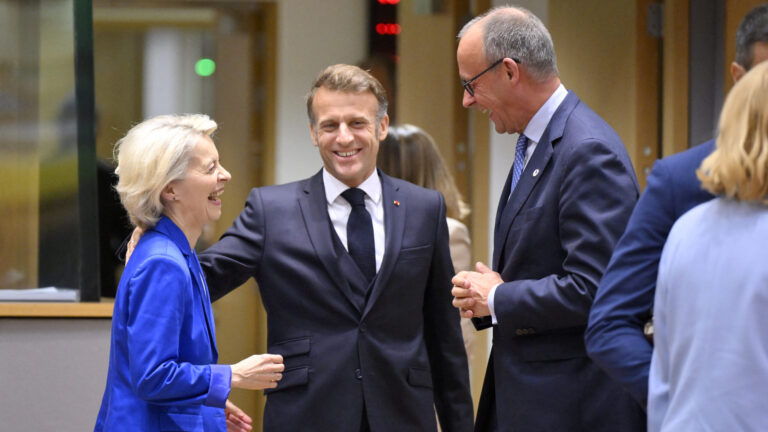Scruton MCC hosted its second annual Scruton symposium last week. This time the Salon was dedicated to the topic of nation-states and their importance in preserving Europe as we know it today.
The speakers invited to share their insights at the event titled ‘The Need for Nations’ — Scruton Salon on Europe, as a civilisation of nation states were Boglárka Ballester-Bólya, Ministerial Commissioner at the Ministry for EU Affairs of Hungary, French historian and university professor Edouard Husson, and Daniel Pitt, Teaching Associate at the University of Sheffield.
Boglárka Ballester-Bólya, who spent as many as 16 years working in the European Parliament in Brussels, and who is currently an EP candidate on the Fidesz list, began by underscoring that despite the slogan and principle of an ever-closer union, divisions are now stronger than ever in the EU.
The ministerial commissioner argued that the main reason for that is that EU institutions, and in particular the Commission, have followed the faulty pattern of not listening to the voice of the European people and not allowing real choices. Instead, a vision and programmes decided by the mostly federalist EU bureaucrats and elites have been imposed.
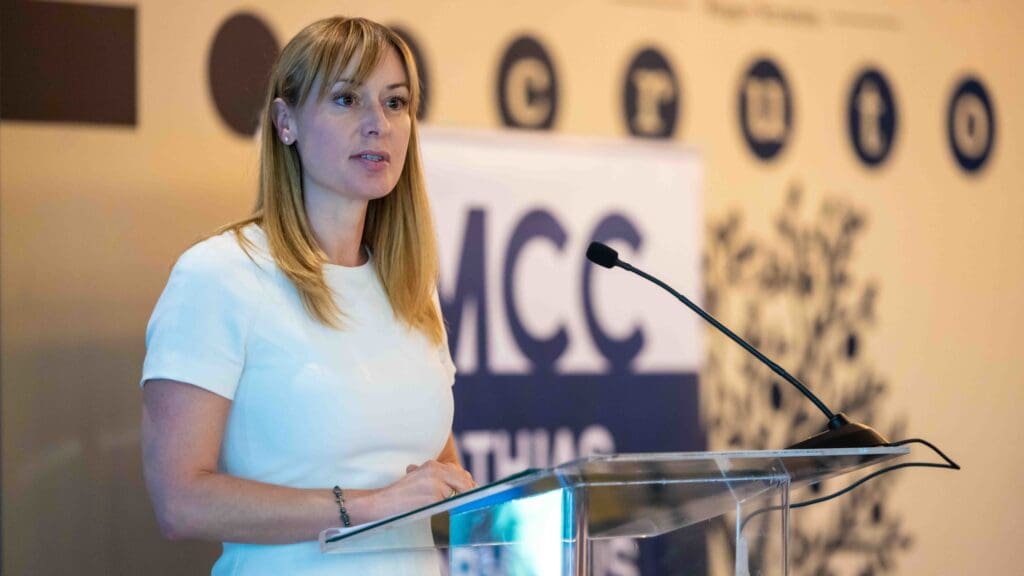
Commissioner Ballester-Bólya also reminded that EU bureaucrats criticized Hungary’s unique ways of obtaining life-saving vaccines during the COVID-19 pandemic. This was yet another instance that proved that the EU ‘has abandoned its core purpose’, the Commissioner noted, which is guaranteeing peace and prosperity to Europeans. Instead, the same pattern has been followed in all major crises, mass migration, the pandemic and the war on Ukraine: suppressing dissent and disregarding the voice of citizens. The most recent attempt at silencing non-mainstream opinions was NatCon Brussels, she recalled, highlighting that the incident is ‘a dangerous precedent.’ She noted that ‘Brussels is playing with fire’, and underscored the importance of the upcoming EP elections in changing the mistaken course the EU is following.
She reminded as a classic example of the hypocrisy of the European Commission the Conference on the Future of Europe initiative, launched in April 2021, and completed in May 2022. Hungary was one of the most active nations in the EU, with more than 800 events organized by civil society organizations, thinks tanks and academic institutions, and Hungarians were also exceptionally active on the digital platform created for EU citizens to express their proposals as to how the EU should be reformed. While Hungarians overwhelmingly formulated opinions in favour of more sovereignty to nation-states, and the voluntary cooperation between independent nations rather than an imposed federation, citizen inputs were disregarded. In it conclusions drawn from the citizen consultation, the Commission sidelined ideas that did not fit into its federalist vision and once again, top-down agendas prevailed.
The second speaker, Professor Husson, a senior fellow at MCC in 2022, spoke about an issue that at first sight may seem more theoretical than what Ballester-Bólya had to say, but which impacts heavily on the everyday reality of the French: national identity and assimilation.
He stated that there is a political crisis in France, and the deeper reasons for the crisis have historical roots. The professor called attention to the fact that French politicians ‘no longer believe in the French national state model, which was supposed to be a universal model’. He reminded that President Macron has never spoken of French sovereignty throughout his tenure, and while Nicolas Sarkozy for instance was a French patriot, he also made the decision of France re-entering NATO’s integrated military structure. While right-wing parties such as Reconquête and Rassemblement do speak of French identity, they fail to define what they mean by it: is it a cultural or ethnic identity, or do they simply mean defending the French way of life? Would they be content with a non-sovereign France keeping a French identity, or a sovereign France with immigrants? The professor argued that these questions remain unanswered, and that identity and sovereignty seem to be at odds in French political discourse.
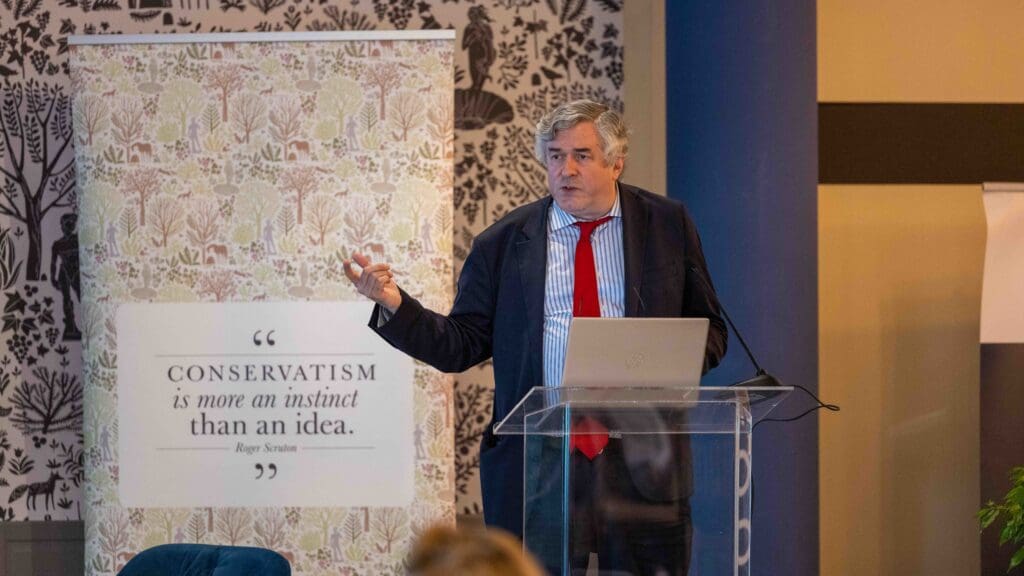
Placing the matter in a historical perspective, Professor Husson stated that ‘the French are Romans’, in the sense that they are the descendants of the Gallic tribes, civilized by the Romans, who adopted the ruling model of ancient Rome, which is assimilation. This model is essentially ‘open to everything that is coming but has the strength to transform it to your own likeness’, Professor Husson explained. The core of the problems in France, however, is that French politicians have given up on assimilation, and French elites no longer believe in the Roman model.
He noted that while France has seen massive immigration in recent history, schools for instance have ceased to be the terrains of assimilation, as French literatures is practically no longer taught, so young people of immigrant background grow up with no French identity.
In his contribution titled ‘Defenders of the Nation State — Scruton and Hazony’ Daniel Pitt highlighted the commonalities and differences in how Roger Scruton and Israeli–American philosopher, Bible scholar and political theorist Yoram Hazony understand the nation-state.
While Scruton defines the nation along the lines of historical identity, continuing allegiances, and everyday interactions, as well as attachment to a land, Hazony draws from the Hebrew Bible and places emphasis on concepts like kin and religion. Dr Pitt noted that Scruton in fact hardly ever uses the term nationalism, as someone who showed a general aversion to -isms. When he did discuss it, Scruton highlighted that nationalism can be perverted, can become dangerous as an ideology, and the same warning is also made by Hazony. Hazony notes that ‘simplistic narratives’ about nations and nation-states should be dismissed, as they caused the Holocaust and two world wars.
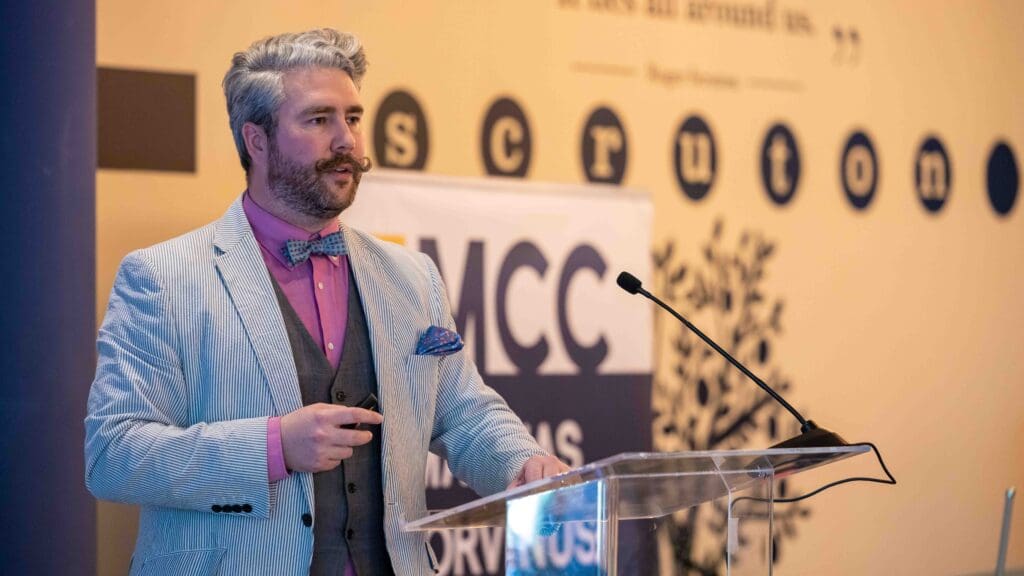
What Scruton emphasized, Daniel Pitt noted, is that the nation should not be put above the individual, reminding that the nation is made up of individuals. Scruton also speaks about the importance of the protection of local customs, immigration control and the need to withdraw from the European Convention on Human Rights.
What is a common trait in the thought of both great philosophers is that they underscore the golden rule of neighbourly love, neighbourliness, as underpinning a nation-state. Also, they both posit that nation-states are good and allow for the flourishing of liberties for a number of reasons. They represent a bond of mutual loyalty and collective self-determination, which is a preserving force; through the establishing of external boundaries, they defend a territory and become able to protect the rule of law. As Hazony puts it, a nation is ones’ ‘extended self’; Dr Pitt added that Margaret Thatcher illustrated the same idea with the example of the mountaineer who climbs the Everest as an individual but plants their country’s flag at the top.
Both thinkers see elites as threats to nation-states, with Scruton being especially critical of international organizations in this regard; Scruton highlights oikophobia, the hatred of one’s home, as a major threat as well. Hazony, on the other hand, identifies liberalism and a lack of empirical thinking as the central threats to nation-states.
The remarks were followed by a vibrant panel discussion moderated by the always brilliant Mátyás Kohán, the young foreign affairs journalist and deputy foreign affairs editor at Mandiner. The topic the panellists, Stephen Balogh, UK parliamentary candidate for the Social Democratic Party in the upcoming general election, Daniel Pitt, and Mihály Rosonczy-Kovács, International Director of the Nézőpont Istitute (Nézőpont Intézet) were asked to reflect on the impact of Brexit on European national and patriotic movements.
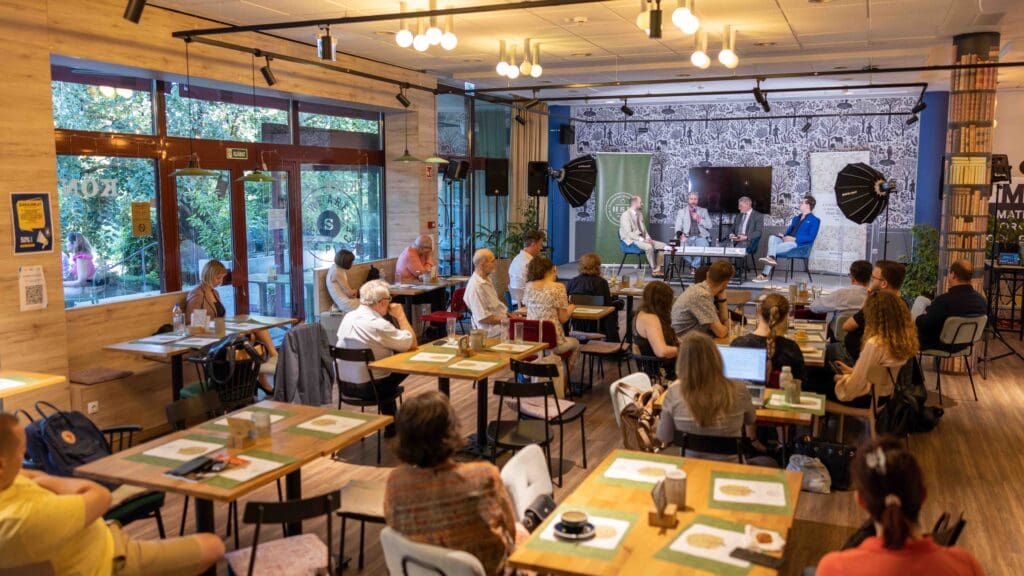
Responding to the moderator’s first question of whether Brexiteers got what they wanted, Stephen Balogh, who, as his surname also suggests, is of partly Hungarian extraction, started by declaring that he is a Leaver. He then opined that Brexit has satisfied no one as it has unwound so far, except those who wanted to be vindicated as to ‘what a mess it would be’.
Balogh noted that there seems to be a lack of national unity and purpose in terms of the way forward for Britain. He also stressed that the whole Brexit process is constitutionally also problematic, and it is not unequivocal whether the referendum was even legally binding. Balogh recalled that there were years of dispute following the plebiscite and on how parliament could reasonably enact its outcome. He reminded that the establishment did not want to implement it to begin with. At the same time, Balogh highlighted, the catastrophic consequences foreseen by many did not happen; exports are up, and trade is up, ironically enough, including with the EU.

Daniel Pitt commented that Brexiteers were very diverse, and had different goals in mind, such as a libertarian-global Britain, reconnecting with the Anglosphere, Britain First economically, with reshoring industry; then there were the socially conservative, those appealing to national loyalty, and so on. All these forces came together to win the referendum, but they quickly dissolved after the win which is partly why the Conservative Party has issues now. All considered, Dr Pitt concluded, as the fundamental issue behind Brexit was national sovereignty, the ability of a people to make its own decisions, Brexit has been a success.
Mihály Rosonczy-Kovács recalled that the Eurosceptic movement wanted to free Europe from those ‘who feel anointed to determine what democracy in Europe is’. He reminded that the central message of the commercials paid for by the Government of Hungary at the time, trying to convince Britons to vote remain, was ‘The Choice Is Yours’. He stressed that Hungary in fact does not want to say no to Europe or the EU, and quoted Viktor Orbán as stating that he is ‘passionate about Europe’. He noted that the Hungarian prime minister, and he agrees, has also argued that the debate about sovereignty and federalism is important and ‘cross-fertilizing’.
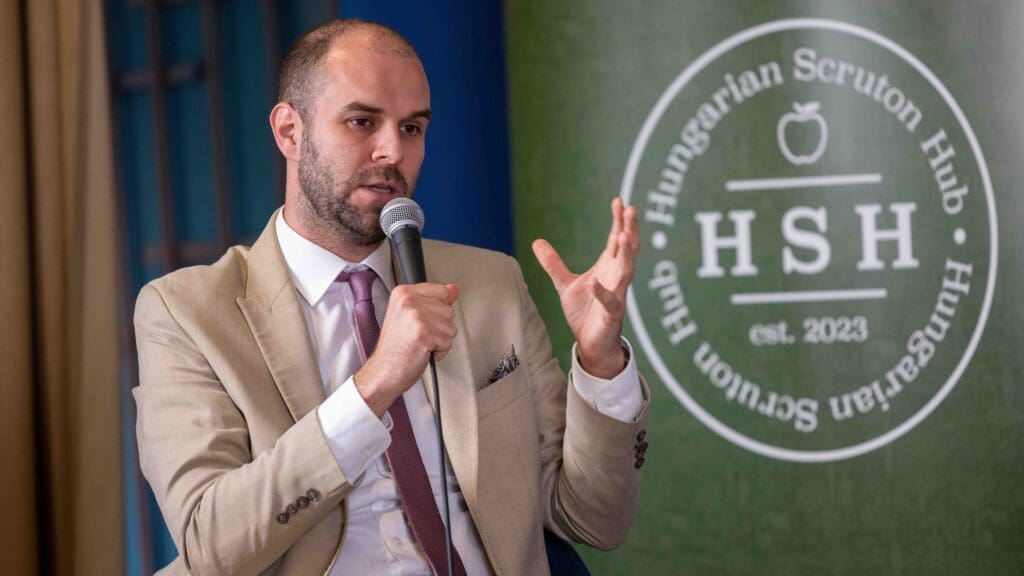
Stephen Balogh, reflecting on what Dr Pitt said about the Conservative Party, said that conservatives have been in office since Brexit, ‘but not in power’. He described it as a party that is not conservative; that is ‘utterly worn out from battling against things it doesn’t understand’; and concluded that what we are seeing now are the ‘death throws of the legacy conservative party’, and the need for it to be replaced with other formations in the centre-right, envisioning that a new formation may emerge on the wreckage. He suggested that a bigger question than Brexit is what conservative means in the West, stating that there are new kids on the block, who are deeply conservative, but would not recognize Western conservatism. He also highlighted that the Conservative Party has done a poor job in choosing its leaders, too: he summed this up by stating that while Boris Johnson was obviously not faultless, he was ‘a winner’, and got replaced by Rishi Sunak, for one, who has ‘never won anything’.
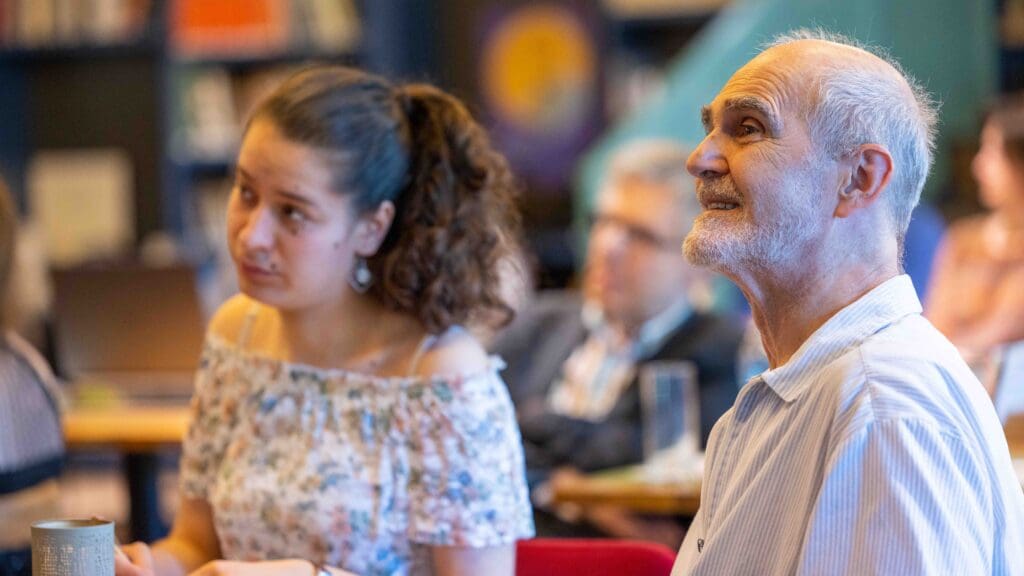
Daniel Pitt added that as opposed to the Conservative Party itself, the conservative movement is strong and healthy in Britain; there is a new TV channel, an online TV, more conservative thinkers influenced by Scruton, academics, including Hungarian political philosopher and historian of ideas Ferenc Hörcher, conducting valuable discussions based on Roger Scruton’s ideas. Dr Pitt also cited NatCon as a positive example, as well as the international conservative philosophy group, or Critic magazine, stressing that there is now a new conservative institutional network that is blooming.
To put things in context, he also emphasized that electorates voting for the Conservatives have changed substantially over the past year. While under David Cameron’s premiership many voters were liberal-leaning and pro-Europe, by 2017 this changed.
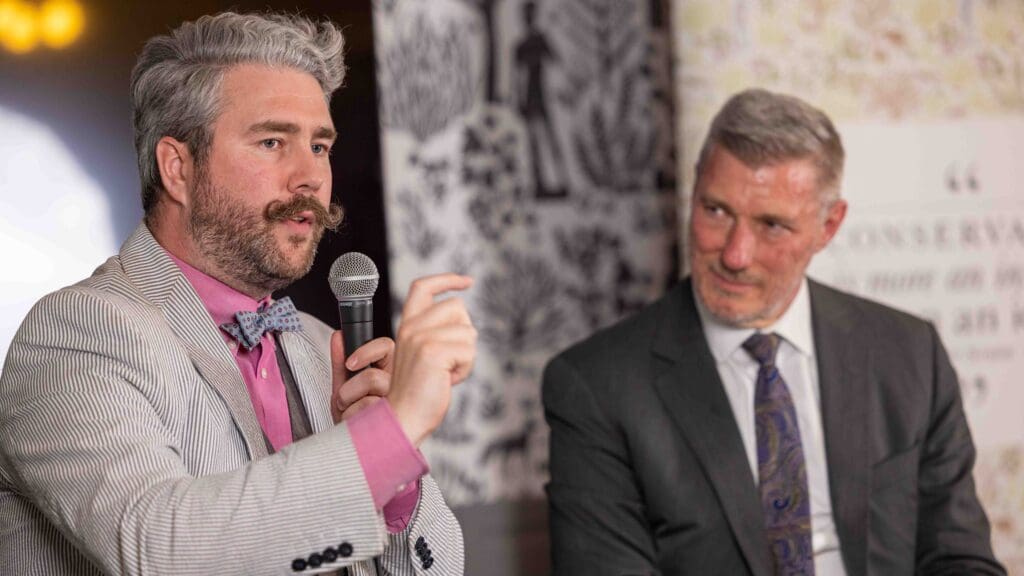
Rosonczy-Kovács reflected on what had been said by opining that it is perhaps more precise to speak about a sovereigntist camp rather than a conservative camp in Britain and Europe. He agreed with Daniel Pitt that in the last years this movement has done a lot that has never been done earlier. He also remarked that continental sovereigntists are very much alike, as far as the basic ideas are concerned, attributing importance to such (Scrutonian) values as beauty, land, and so forth.
It was also noted during the discussion that another form of conservatism has emerged, Islamic conservatism which has to be reckoned with. Liberals and socialist are ‘squeezed in the middle’ in that respect, with hardcore socialists thinking they are going to ‘win the battle’ with the help of Islamic voters.
According to Stephen Balogh, there is a sense of urgency felt by the people in Britain, with the demographic change resulting from mass immigration, with not much chance left to preserve a conservative way of life. People in the millions are yearning for conservative policies in Britain, he concluded. Rebutting the moderator’s suggestion, he added that the Social Democrats are in fact ‘the most Scrutonite party of all’, and not allies of the Reform UK party.
Returning to the original question of what Brexit’s impact on Europe has been, Rosonczy-Kovács said the primary impact was that it can happen: that leaving the EU is possible. He referred back to what Ms Bólya-Ballester had said in her remarks: Brussels is playing with fire in alienating sovereigntists member states. Brexit showed that the ultimate reaction may be an exit. Recently, there have been allusions to a Huexit, Polexit, etc., by mainstream actors, which is a type of communication tool they should be careful with, he warned. He cited the new leftist Polish governing coalition that has accused the Polish right of advocating for ‘a lurking Polexit’, claiming that they don’t say it but they mean it. Giorgia Meloni, Rosonczy-Kovács recalled, was also accused of the same, she was successful in making that go away.
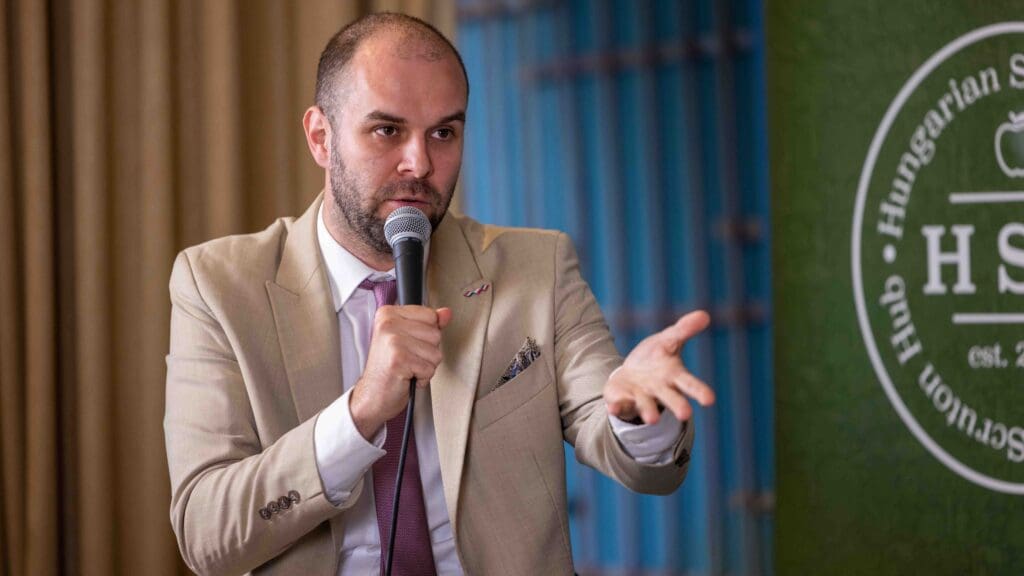
He expressed irritation at the fact that those who are really in favour of a united Europe in cultural terms are labelled as Eurosceptics. He recalled that during the last EP session the British MEPs attended, Nigel Farage was told to just leave ‘and take your flags with you’, which was a par excellence display of the oikophobia Scruton described.
Responding to the question of why other EU countries have not chosen to exit, Stephen Balogh admitted he doesn’t know the answer to that question. But the Basque and Catalonian separatists who were looking at Brexit considering if they could use that example ‘were stopped harshly’.
Daniel Pitt opined that maybe Europeans wanted to watch and see how it would go for Britain. But overall, he noted, there has been a shift to the right in previously liberal countries, too, such as Finland. However, the national-populists have backtracked from their position of ‘one day we would like to get out of the EU’, and switched to ‘this far and not further’, he remarked, citing as an example of attempts to limit the scope of international legislation on national legislation.
Rosonczy-Kovács reiterated that those sovereigntists who criticize the EU are in fact not against, but for Europe. The new member states, Eastern Europeans, conservatives and sovereigntists are passionate about Europe; what they want is to restore the original role of the EU, which, as Ballester-Bólya also reminded in her remarks, is securing peace and prosperity.
He also argued that integration is not necessarily a value, it is a tool. While Hungary is open to talking about the treaties, it is guided by the principle of ‘pacta sunt observanda’ (‘agreements must be kept’) until the agreements are changed. The Nézőpont executive also stressed that it seems to be taken for granted that the phrase ever-closer union means more and more powers for Brussels, whereas in reality it should be the ever-closer union of the peoples of Europe. The legitimacy of the EU comes from the nation-states, he nailed down.

